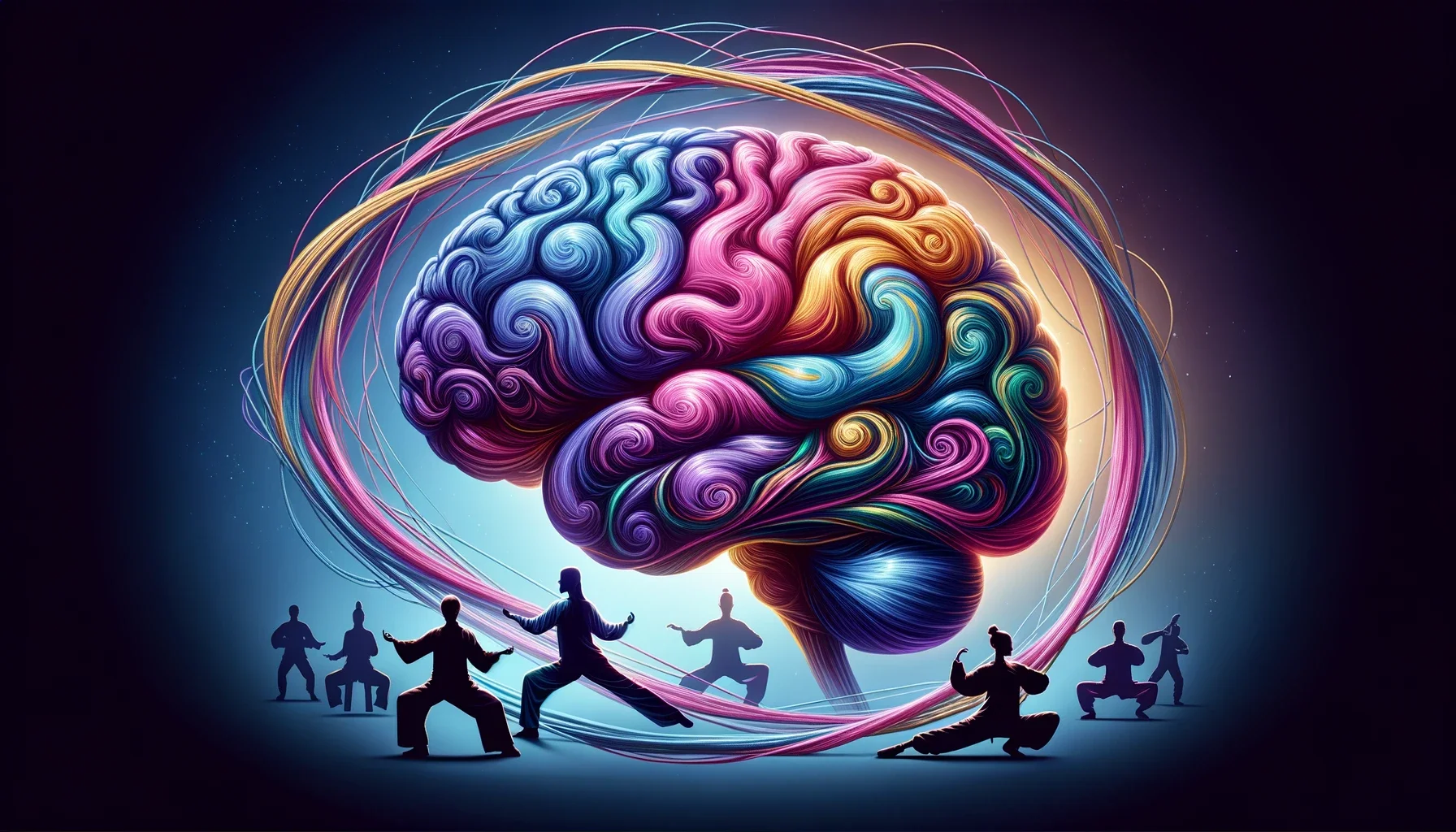Impact of Dementia on Mental Health
Dementia is a terminal neurological disorder that leads to impairment in cognitive function, especially in the areas of memory. This can be very stressful not only for the individuals diagnosed but also for their families and caregivers as well.
Dementia is a progressive disease that complicates life for families in numerous ways, and the subject of its effect on mental health remains one of the most significant concerns.
These are not limited to physical needs but also emotional and psychological aspects, and they tend to be more taxing for family caregivers. Knowing what to do and whom to turn to when faced with such problems, like seeking help from a dementia care service, is very beneficial for both the patient and the caretaker.
The Impact of Dementia on Mental Health
Both painful and sweeping, dementia is not only a condition that personally impacts the person diagnosed but also alters the lives of all those surrounding them.
The recall ability of an individual, conduct, and character may change, which is painful for the families to watch. These signs may further result in depression, anxiety, frustration, and social isolation among the afflicted individual as well as the carers.
For the Person with Dementia
Cognitive symptoms include confusion, disorientation, and fear, which result from the impairment of mental functioning in patients with dementia. In early conditions, patients may notice that they have forgotten something, which can cause embarrassment, frustration, or anxiety. These feelings may progress to paranoia or hallucinations since the brain has to undergo a process to understand reality.
Such issues are likely to worsen other behaviors associated with dementia, hence the need to address mental disorders promptly. Self-obsession, temper tantrums, and isolation are also prevalent, and coping with such signs might be a pretty frustrating and time-consuming endeavor.
Cognitive dysfunction means that the person with dementia experiences deep feelings of loneliness, and nobody can support him unless he is receiving professional assistance.
For Family Caregivers
Dementia is very stressful; this is what makes caring for a person with dementia very straining emotionally. Witnessing the decline of a close one can be severely depressing, even if it does not require the death of the patient.
One of the most common things many caregivers face is what is termed caregiver burn, whereby the caregiver feels emotionally, mentally, or physically drained. This usually happens when working or attending to other family responsibilities while caring for their ailing relatives.
Depression is a typical outcome of family caregiving, particularly when a caregiver is increasingly overwhelmed by the caring responsibilities and their changing nature. This also leads to social isolation since caregivers lack time to socialize or engage in activities that once found interest in their lives.
Tips for Family Caregivers
It is essential to describe mental health in relation to dementia to deal with it. To that extent, the following are practical pointers to assist family caregivers in confronting some of their challenges while giving optimum care and support to cherished family members.
- Seek Professional Help Early
It’s extremely important not to wait until you are overwhelmed with stress and feeling utterly helpless to seek help. A dementia care service can provide specific support for the person with dementia, such as home visits, respite care, or daycare. It is not only an opportunity to help caregivers rest but also provides the individual with experienced care that meets his/her needs.
- Learn Things You Need To Know About Dementia
Knowledge is an important defense weapon in the hands of caregivers. Understanding the stages of dementia and the symptoms that develop can allow you to prepare for your loved one’s needs and, in some cases, behavioral changes. Currently, there are many helpful websites, forums, and books where you can get more information about how to care for demented persons.
- Establish a Routine
Such as the specific routines they prefer to keep because individuals with dementia love some form of structure. Implementing a daily schedule can help minimize confusion and frustration, making their actions more manageable. The benefits of the routine are apparent for caregivers: it eliminates uncertainty and gives you the opportunity to think about what you have on your schedule and prepare for everything without added stress.
- Prioritize Self-Care
While nursing the sick, one might not be considerate of his or her health, which leads to exhaustion. Try to do things you like. These may include exercising, reading, or going out with friends. If you feel overwhelmed and require a breather, then do not think twice about hiring respite care from a dementia care service.
- Join a Support Group
There is nothing that heals like talking to people in similar situations like yourself. Dementia caregivers find comfort in support groups, where they meet and discuss issues regarding caregiving and receive advice and support. Some support groups are now available online, so you can sit back at home and make new friends.
- Focus on Communication
Negotiation of dementia generally entails that as the disease progresses, communication becomes a challenge. Speak in short sentences, make eye contact, and do not argue with the patient if he or she is disoriented. This makes conflicts friendly so you can always calm down and find a diplomatic way forward, and active listening can make them feel valued or heard.
- Know Your Limits
It should be understood that there is no shyness when turning to someone or something for assistance. However, if you feel overwhelmed by the responsibilities of caring for your loved one, ask for a professional dementia care service, such as in-home care or a retirement community.
They provide professional help while staying on top of themselves so you can take care of your emotional and mental well-being now.
SEE ALSO: Extreme Fatigue and Brain Fog
Insights on Impact of Dementia on Mental Health
Dementia encompasses a range of cognitive impairments that affect memory, thinking, behavior, and daily functioning. It is more common in older adults but can also affect younger individuals.
Alzheimer’s disease is the most common form of dementia, but other types, such as vascular dementia, frontotemporal dementia, and Lewy body dementia, also exist. The impact of dementia on mental health is profound, both for the person affected and their caregivers.
1. Cognitive Decline
One of the most significant aspects of dementia is the decline in cognitive functions. This includes:
- Memory Loss: The person may forget recent events, appointments, or even the names of close family members.
- Confusion and Disorientation: They may become confused about time, place, and identity, leading to increased anxiety and stress.
- Difficulty Communicating: Understanding and expressing thoughts becomes more challenging, which can lead to frustration and feelings of isolation.
2. Emotional and Behavioral Changes
Dementia often triggers emotional and behavioral changes that can have a major impact on mental health. These may include:
- Depression and Anxiety: Feelings of sadness, hopelessness, and constant worry are common. People with dementia may also feel anxious about their declining abilities or fear the loss of their independence.
- Agitation and Aggression: Some individuals may exhibit aggressive behavior, frustration, or agitation due to cognitive decline or difficulty in communication.
- Paranoia and Delusions: As dementia progresses, some individuals may develop irrational beliefs or hallucinations, which can be distressing for both them and their caregivers.
3. Social Isolation
People with dementia may withdraw from social interactions due to memory loss, confusion, or an inability to follow conversations. This social isolation can lead to worsened mental health, increasing feelings of loneliness and depression.
4. Loss of Independence
As dementia progresses, the individual may become less able to carry out everyday tasks independently, which can lead to frustration, anger, and a loss of self-esteem.
Tips for Healthcare Givers
Caring for someone with dementia requires patience, understanding, and compassion. Healthcare givers play a crucial role in supporting individuals with dementia and managing their mental health needs. Here are some key tips:
1. Maintain a Calm and Supportive Environment
- Create a Familiar Space: Keep the environment consistent, with familiar objects and a predictable routine, which helps reduce confusion and anxiety.
- Stay Calm and Patient: Dementia patients may get confused or agitated, and it’s important for caregivers to remain calm and reassuring, even in challenging situations.
2. Engage in Stimulating Activities
- Mental Stimulation: Encourage activities that stimulate the mind, such as puzzles, games, or simple conversations, to help maintain cognitive abilities.
- Physical Activities: Regular physical exercise, like walking or gentle stretching, can help improve mood, reduce stress, and promote overall well-being.
3. Promote Social Interaction
- Encourage Socialization: Try to involve the person in social activities with friends and family. This helps combat isolation and can improve mental health.
- Use Technology: Video calls or virtual meetings with loved ones can help bridge the gap, especially if the person has mobility issues or prefers staying at home.
4. Focus on Effective Communication
- Simple and Clear Language: Use short, simple sentences and ask direct questions. Avoid overwhelming the person with too many options or complicated explanations.
- Non-Verbal Cues: Be attentive to body language and facial expressions, as these may be a more effective form of communication when verbal abilities decline.
5. Monitor and Manage Mental Health
- Watch for Signs of Depression and Anxiety: Caregivers should be aware of the signs of depression or anxiety and seek professional help if needed. This may include a sudden change in mood, withdrawal from social interactions, or a decrease in energy levels.
- Encourage Comfort and Reassurance: Offer frequent reassurance and avoid arguing or correcting the person. Focus on providing comfort and understanding.
6. Educate and Involve Family Members
- Family Support: Caregiving can be overwhelming, so involving other family members in the caregiving process helps distribute the responsibilities and provides emotional support.
- Provide Information: Educate family members on dementia and its mental health impacts so that they can understand the behaviors of their loved ones and approach them with empathy.
7. Seek Professional Support
- Medical and Psychological Support: Regular visits to healthcare providers are essential for managing dementia and any related mental health conditions. Mental health professionals such as psychologists or psychiatrists can help develop strategies to cope with behavioral changes and emotional issues.
- Support Groups: Both caregivers and people with dementia can benefit from support groups where they can share experiences, get advice, and find emotional support.
Dementia profoundly impacts the mental health of those affected, requiring a thoughtful and comprehensive approach to caregiving. By fostering a supportive, understanding environment, encouraging mental and physical activity, and promoting social engagement, caregivers can significantly improve the quality of life for those living with dementia.
Conclusion
Dementia impacts more than just memory and cognition; it affects the emotional and mental well-being of the person diagnosed and their caregivers. By understanding these challenges and taking proactive steps to manage the emotional toll, family caregivers can maintain a better quality of life for themselves and their loved ones.
Seeking support from a dementia care service, staying informed, and prioritizing self-care are all essential in navigating this difficult journey with compassion and resilience.
Bulimia Nervosa An Eating Disorder
Natural Treatments for the Brain
Cucumber Beautifies and Cleanses the Skin
Turmeric for your stomach and skin

A graduate of Computer Science and Information Management Technology. Diploma – Caregiving, Certificates – Dementia and Diabetes Awareness and Management. A researcher, blogger, songwriter, singer and acoustic guitarist. Born in an environment where natural talents such as healing are imparted at our natural birth. This natural talents of healing is the result of our genetic inheritance and the training from family environment.












